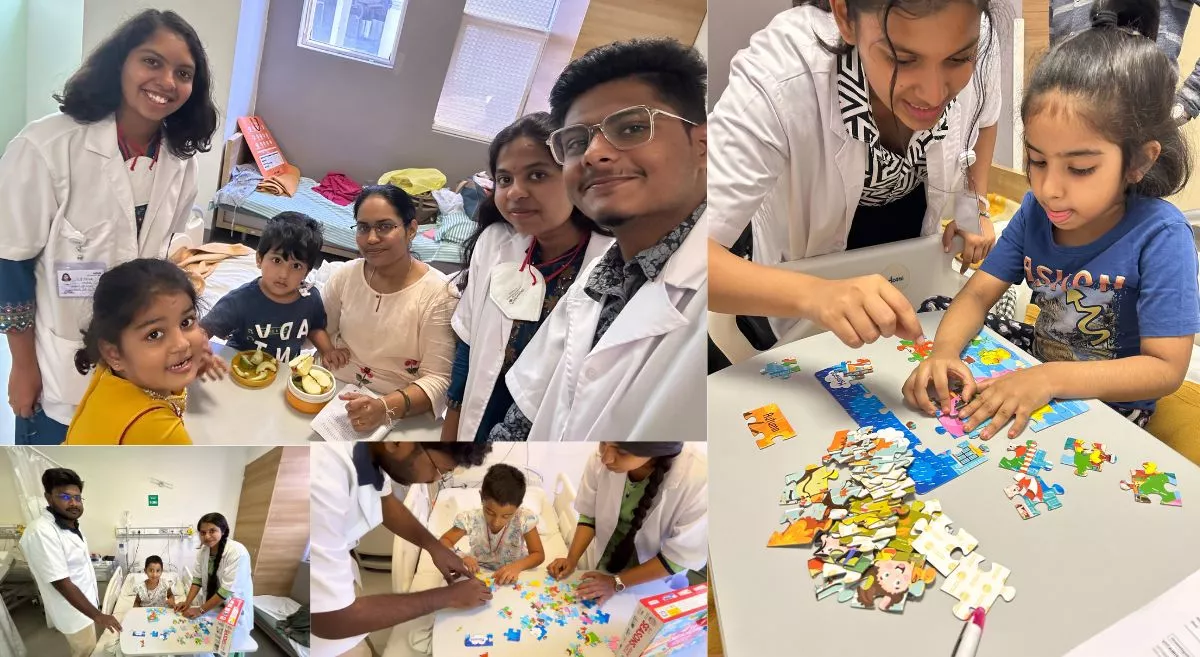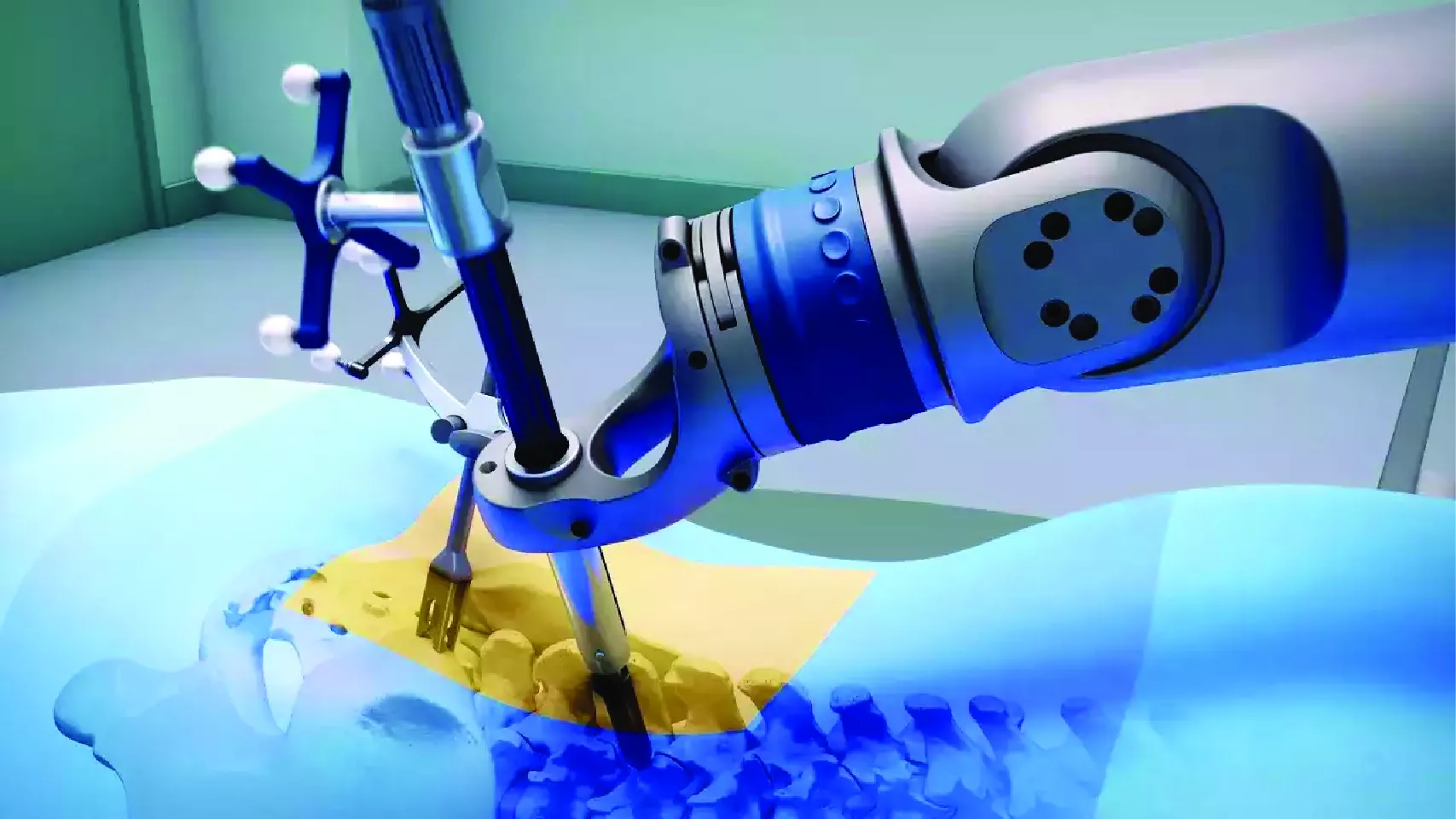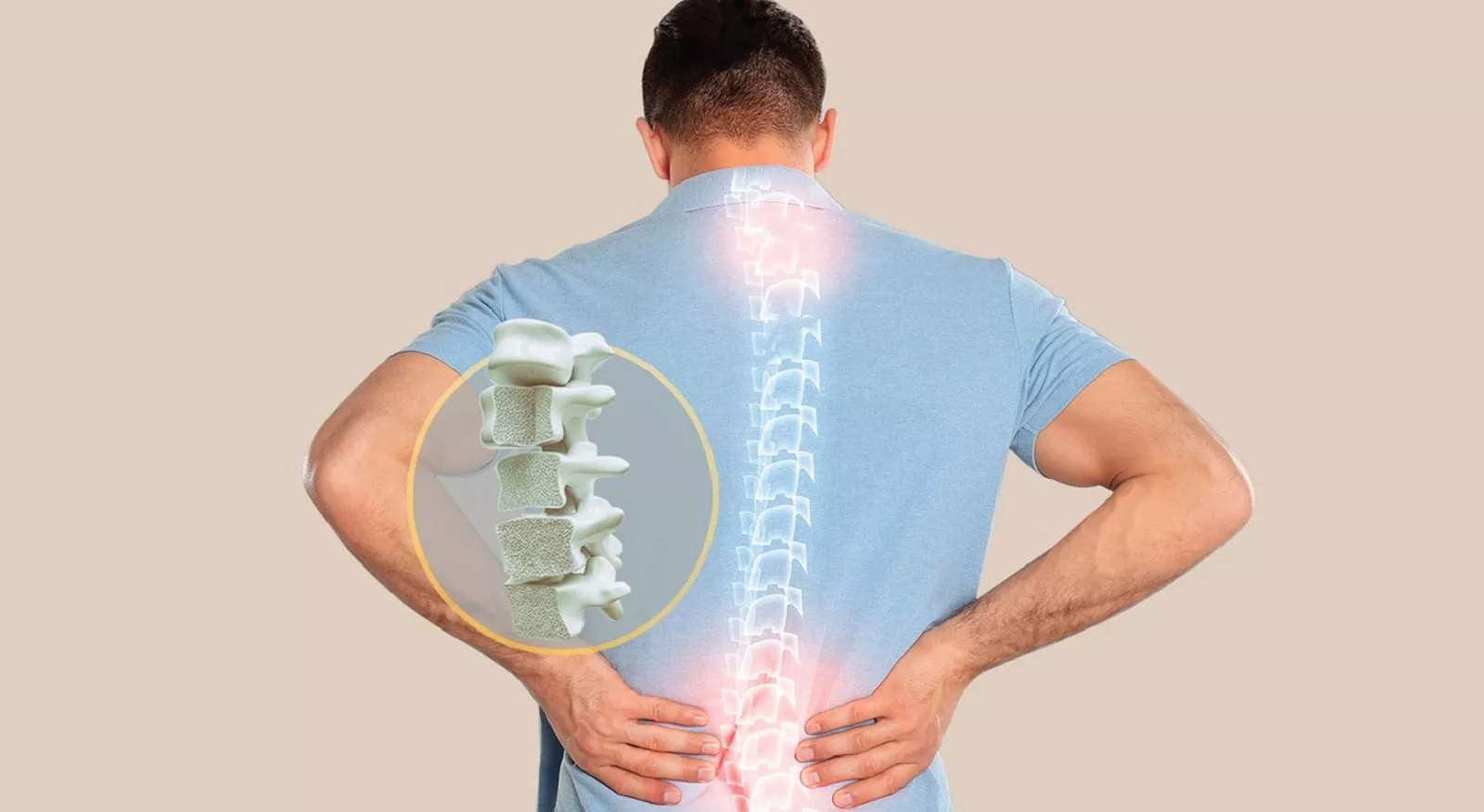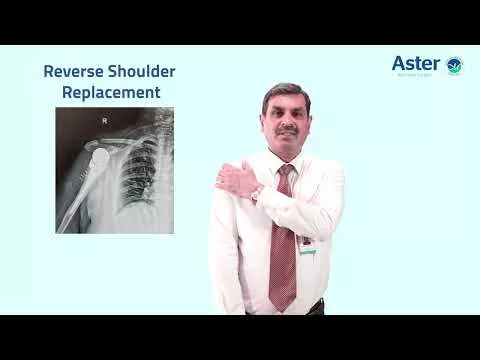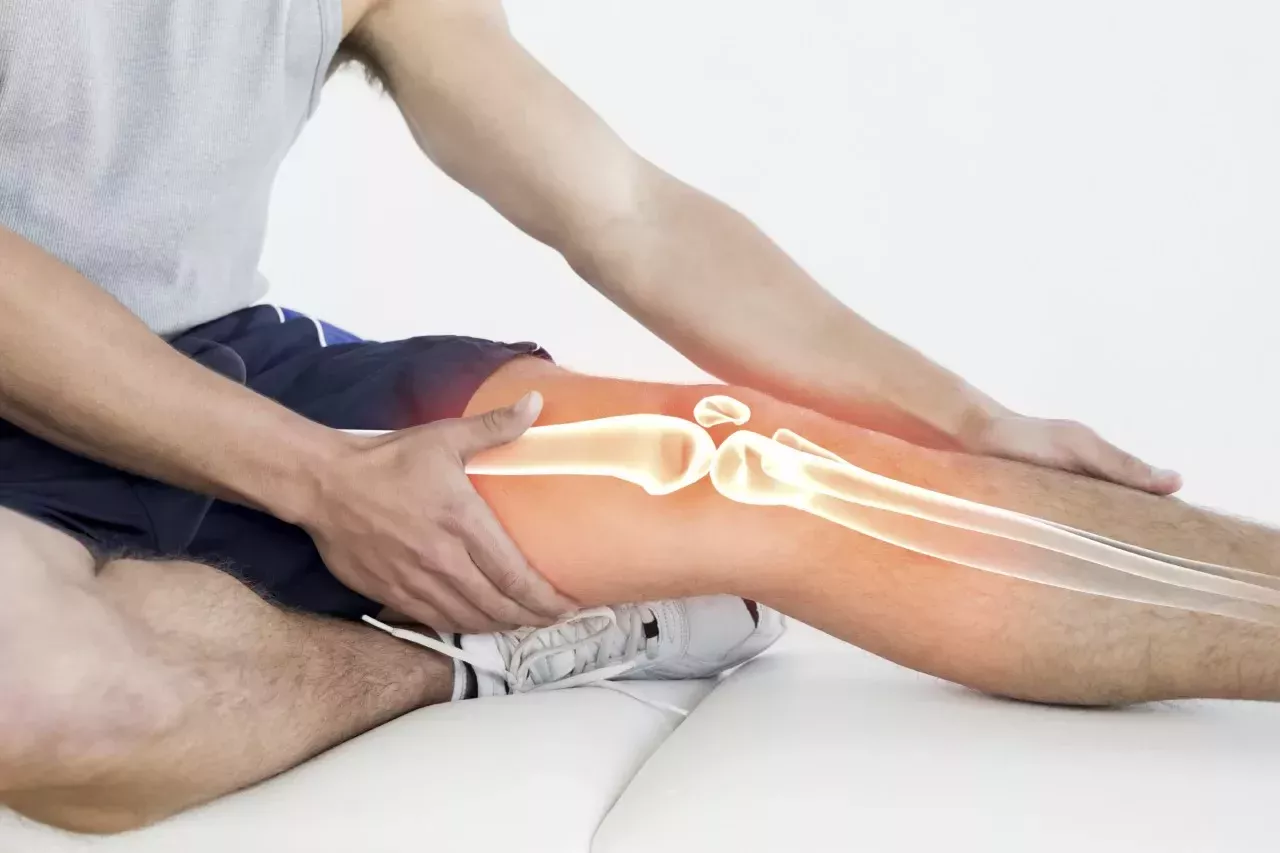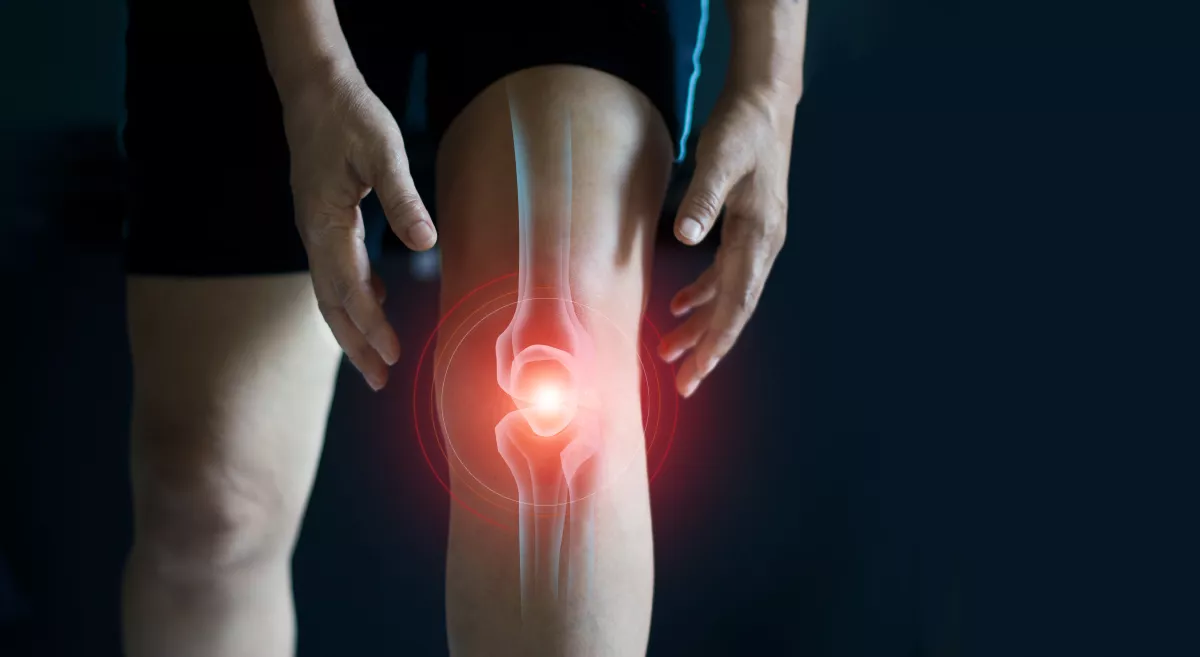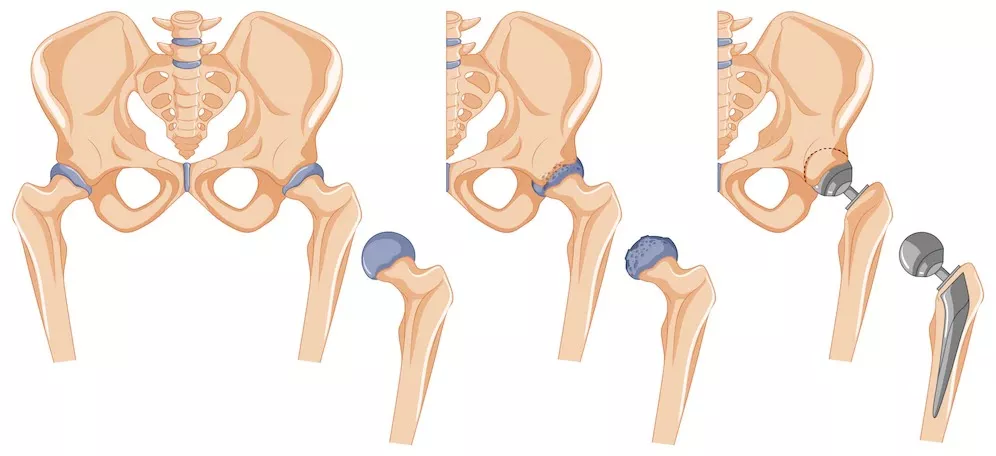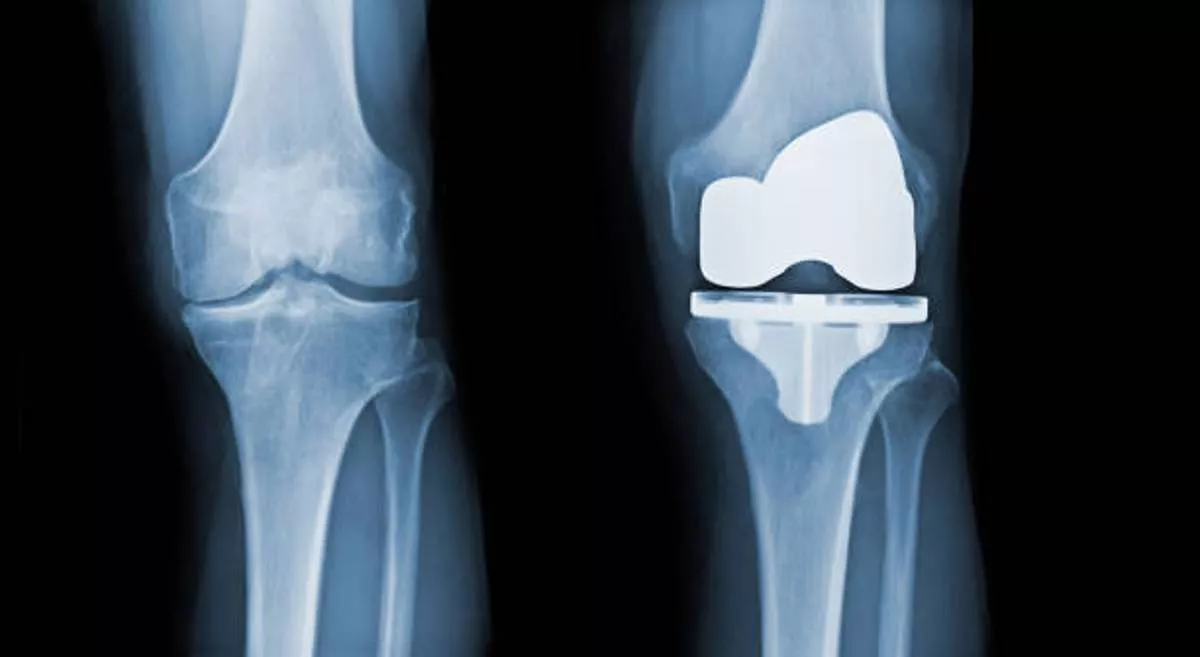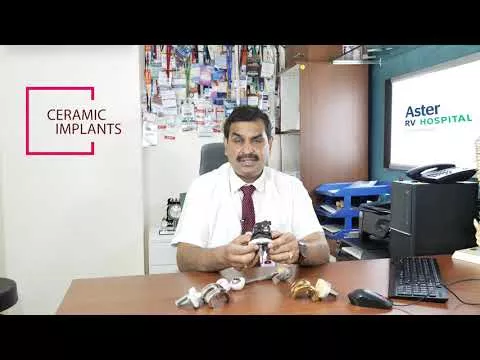33-year old Kasim leg was damaged in a 2018 bomb blast in Yemen and had 23 surgeries in the last 4 years and found it difficult to perform daily activities. His injury and consequent surgeries had left him with a shortened leg and fused hip.
After the incident, he suffered from depression. He had to use prosthetics for his left leg so that it would touch the ground and additionally needed crutches to walk. He could not even use a wheelchair to move around because he is not able to bend his hip properly to sit. Nobody was willing to give him a job due to his disability. Doing daily activities simple things such as cooking, cleaning, bathing, or even sitting became a difficult task for him.
A friend of Kasim referred him to the Aster RV hospital who himself had undergone knee replacement surgery at Aster RV Hospital a year ago. After a complete examination of Kasim, the doctors at Aster RV Hospital decided to use 3D printing technology for the diagnosis and get an accurate extent of the internal hip joint damage. The orthopedic doctors at Aster RV Hospital located in JP Nagar used specialized hip implants in the surgery, and after the surgery, Kasim went for rehabilitation and learned how to re-use his injured leg.
Kasim had lost the complete ball and socket of his hip and the remaining was fixed to his hip, due to which no movement was possible. The repeated surgeries and loss of soft tissue changed the normal anatomy which made the surgery more difficult, explained Dr. J.V Srinivas, Lead Consultant, Department of Orthopedics at Aster RV Hospital, J P Nagar.
A complex primary hip reconstruction surgery was conducted on 2nd February using specialized hip implants for the patient. The surgery took more than 4 hours. After a successful hip replacement surgery in Bangalore, Kasim underwent rehabilitation during which he re-learned how to use his leg. Kasim hip is now stable and can be moved around freely which helped him to return to his previous life. His stitches have been removed and now he is undergoing rehabilitation and planning to leave for his country.
For hip replacement in Bangalore consult the best hip replacement surgery hospital near you.
What is Hip Replacement Surgery?
During a hip replacement surgery, a surgeon surgically removes a painful hip joint and replaces it with an artificial joint usually made up of plastic ceramic, and metal components. It mostly is performed when all other treatment options have failed to deliver adequate pain relief. The treatment procedure should relieve a painful hip joint, making walking easier and improve function.
Also known as total hip arthroplasty, hip replacement surgical treatment might be a good option for you if your hip pain interferes with your daily activities and nonsurgical treatments haven't helped or are no longer helpful. Arthritis damage is the most common cause to need a hip replacement.
Why it's done?
Situations that can injure the hip joint, sometimes making hip replacement surgery, include:
Osteoarthritis: It is mostly known as wear-and-tear arthritis, osteoarthritis damages the slick cartilage that covers the ends of bones and helps in joint movement.
Rheumatoid arthritis: It can be caused by an overactive immune system, it releases a type of inflammation that can erode cartilage and occasionally underlying bone, resulting in damaged and deformed joints.
Osteonecrosis: If there isn't enough supply of the blood to the ball portion of the hip joint, such as might result from a dislocation or fracture, the bone might collapse and deform.
You may go for a hip replacement if you have hip pain that:
Persists, despite pain medication
Worsens with walking, even with a walker
Interferes with your sleep
Makes it difficult to get dressed
Influence your ability to go up or downstairs
Difficult to rise from a seated position
Check with the best hip replacement surgeon in Bangalore, if you have any of the above problems.
Risks of Total Hip Replacement
Blood Clots: Clots can develop in your leg veins post-surgery and can be dangerous because a piece of a clot can break off and travel to your lung, heart, or rarely your brain.
Infection: Infections can occur at the location of your incision and in the deeper tissue close to your new hip.
Fracture: There is a risk during surgery, that your healthy hip joint might fracture.
Dislocation: Certain positions can cause the ball of your new joint to dislocate from the socket, mostly in the first few months after surgery.
Change in leg length: It is very rare, but sometimes a new hip makes one leg longer or shorter than the other leg.
Loosening: Although this is rare with newer implants, your new joint might not become fixed to your bone or might loosen over a period of time, causing pain in your hip.
Nerve damage: Rarely, nerves in the location where the implant is placed can be injured. Nerve damage can result in numbness, weakness, and pain.
What you can expect?
When you check in for your hip replacement surgery, you'll be asked to remove your clothes and wear a hospital gown. You'll be given either a spinal block, which numbs the lower portion of your body, or a general anaesthetic.
Your doctor might also give you a nerve block by injecting an anesthetic close to nerves or in and around the joint to block pain after your surgery.
During the procedure
The surgical procedure takes a few hours. To perform a hip replacement, your doctor:
Makes an incision over the side or front of your hip
Removes defective bone and cartilage, leaving healthy bone intact
Implants the prosthetic socket to replace the damaged socket
Techniques for hip replacement are constantly evolving and surgeons are continuously trying to develop less invasive surgical techniques to reduce recovery time and pain.
After the procedure
After surgery, you'll be sent to the ward until your anesthesia wears off. The nurses will monitor your blood pressure, pulse, alertness, pain or comfort level, and your need for medications. Some patients go home the same day, but most are admitted to the hospital for one or two nights.
Aster RV hospital is one of the best hip replacement surgery hospital in Bangalore, with a serene ambience, spacious interiors, advanced medical facilities, and best doctors, has always strived to achieve the best clinical outcome.




